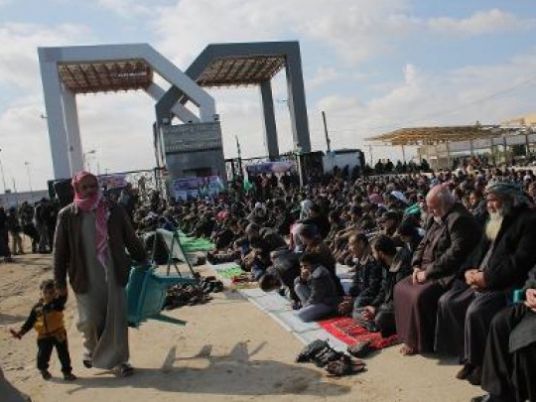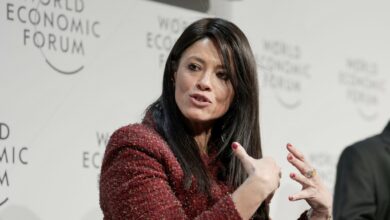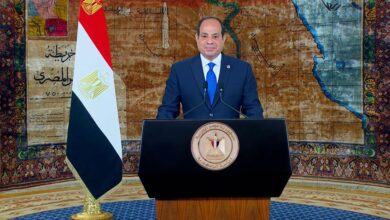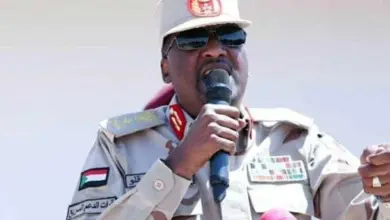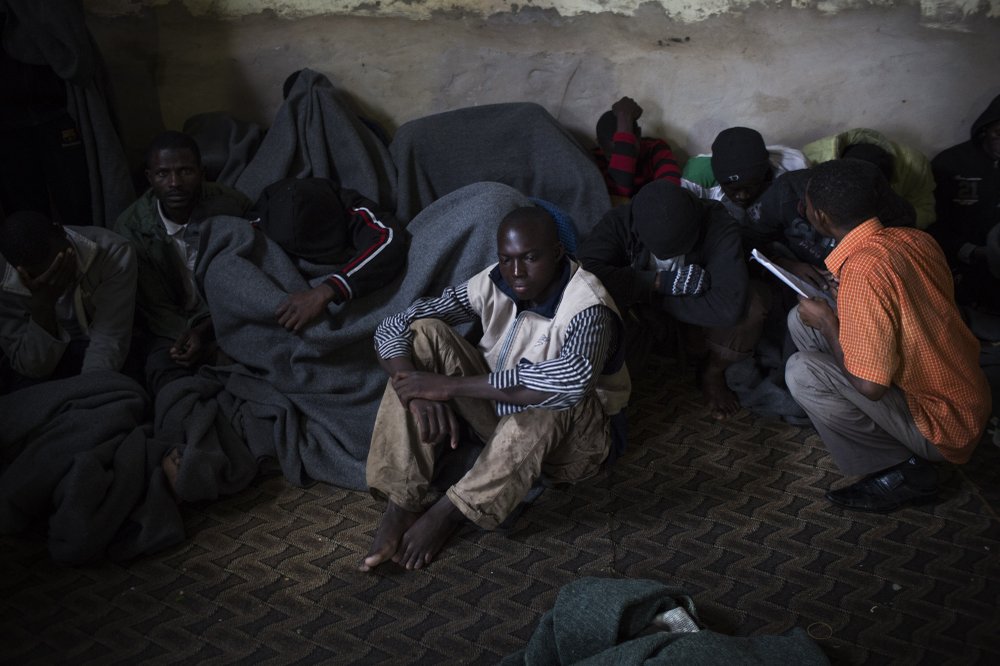
TRIPOLI, Libya (AP) — When the European Union funneled millions of euros into Libya to slow the tide of migrants crossing the Mediterranean, the money came with EU promises to improve detention centers notorious for abuse and fight human trafficking.
That hasn’t happened. Instead, the misery of migrants in Libya has spawned a thriving and highly lucrative web of businesses funded in part by the EU and enabled by the United Nations, an Associated Press investigation has found.
The EU has sent more than 327.9 million euros to Libya, with an additional 41 million approved in early December, largely funneled through UN agencies. The AP found that in a country without a functioning government, huge sums of European money have been diverted to intertwined networks of militiamen, traffickers and coast guard members who exploit migrants. In some cases, UN officials knew the money was going to militia networks, according to internal emails.
The militias torture, extort and otherwise abuse migrants for ransoms in detention centers under the nose of the UN, often in compounds that receive millions in European money, the AP investigation showed. Many migrants also simply disappear from detention centers, sold to traffickers or to other centers.
The same militias conspire with some members of Libyan coast guard units. The coast guard gets training and equipment from Europe to keep migrants away from its shores. But coast guard members return some migrants to the detention centers under deals with militias, the AP found, and receive bribes to let others pass en route to Europe.
The militias involved in abuse and trafficking also skim off European funds given through the UN to feed and otherwise help migrants, who go hungry. For example, millions of euros in UN food contracts were under negotiation with a company controlled by a militia leader, even as other UN teams raised alarms about starvation in his detention center, according to emails obtained by the AP and interviews with at least a half-dozen Libyan officials.
In many cases, the money goes to neighboring Tunisia to be laundered, and then flows back to the militias in Libya.
___
The story of Prudence Aimée shows how migrants are exploited at every stage of their journey through Libya.
Aimée left Cameroon in 2015, and when her family heard nothing from her for over a year, they thought she was dead. But she was in detention and incommunicado. In nine months at the Abu Salim detention center, she saw “European Union milk” and diapers delivered by UN staff pilfered before they could reach migrant children, including her toddler son. Aimée herself would spend two days at a time without food or drink.
Her family paid two ransoms for her, and she finally got on a boat that made it past the coast guard patrol, after her husband paid $850 for her passage. She was rescued by a European aid ship.
Aimée was one of more than 50 migrants interviewed by the AP at sea, in Europe, Tunisia and Rwanda, and in furtive messages from inside detention centers in Libya. Journalists also spoke with Libyan government officials, aid workers and businessmen in Tripoli, obtained internal emails and analyzed budget documents and contracts.
The issue of migration has convulsed Europe since the influx of more than a million people in 2015 and 2016, fleeing violence and poverty in the Mideast, Afghanistan and Africa. In 2015, the European Union set up a fund intended to curb migration from Africa, from which money is sent to Libya.
But Libya is plagued by corruption and caught in a civil war. The west, including the capital Tripoli, is ruled by a UN-brokered government, while the east is ruled by another government supported by army commander Khalifa Hifter. The chaos is ideal for profiteers making money off migrants.
Despite the role they play in Libya’s detention system, both the EU and the UN say they want the centers closed. In a statement to the AP, the EU said that under international law, it is not responsible for what goes on inside the centers.
“Libyan authorities have to provide the detained refugees and migrants with adequate and quality food while ensuring that conditions in detention centers uphold international agreed standards,” the statement said.
The UN said it has to work with whoever runs the detention centers to preserve access to vulnerable migrants.
“UNHCR does not choose its counterparts,” said Charlie Yaxley, a spokesman for the UN High Commissioner for Refugees, one of the main UN agencies in Libya. “While these officials are employed by the Ministry of Interior……some presumably also have allegiances with local militias.”
After two weeks of being questioned by the AP, UNHCR said it would change its policy on awarding food and aid contracts for migrants through intermediaries.
“Due in part to the escalating conflict in Tripoli and the possible risk to the integrity of UNHCR’s programme, UNHCR decided to contract directly for these services from 1 January 2020,” Yaxley said.
The militia networks make money directly from the abuse of migrants, torturing them and sometimes sending families videos to raise ransom payments. They also work hand in hand with traffickers and some coast guard members, the AP found.
Sometimes members of the coast guard make money by doing exactly what the EU wants them to prevent: Letting migrants cross, according to Tarik Lamloum, the head of the Libyan human rights organization Beladi. Traffickers pay the coast guard a bribe of around $10,000 per boat that is allowed to pass, with around five to six boats launching at a time when conditions are favorable, he said.
The head of Libya’s Department for Combating Irregular Migration or DCIM, the agency responsible for the detention centers under the Ministry of Interior, acknowledged corruption and collusion among the militias and the coast guard and traffickers, and even within the government itself.
“They are in bed with them, as well as people from my own agency,” said Al Mabrouk Abdel-Hafez.
Beyond the direct abuse of migrants, the militia network also profits by siphoning off money from EU funds sent for their food and security — even those earmarked for a UN-run migrant center, according to more than a dozen officials and aid workers in Libya and Tunisia, as well as internal UN emails and meeting minutes seen by The Associated Press.
Millions of euros in contracts for food and migrant aid went to at least one company linked to Mohammed al-Khoja, a militia leader flown to Rome in 2017 for a UN migration meeting, according to internal UN emails seen by the AP, two senior Libyan officials and an international aid worker. Al-Khoja is also the deputy head of the DCIM, the government agency responsible for the detention centers.
One of the Libyan officials saw a multimillion-euro catering contract with a company named Ard al-Watan, or The Land of the Nation, which al-Khoja controls.
At the time the contract was under negotiation, al-Khoja already ran another center for migrants, Tarik al-Sikka, notorious for abuses including beating, hard labor and a massive ransom scheme. UN emails showed migrants were suffering from severe malnutrition and a tuberculosis outbreak.
Reporting by Maggie Michael, Lori Hinnant, and Renata Britoh; Contributors include Lorne Cook in Brussels; Rami Musa in Benghazi, Libya, and Jamey Keaten in Geneva
Image: In this Nov. 29, 2013 file photo, migrants cover themselves with blankets in a detention center in the Abu Salim district on the outskirts of Tripoli, Libya. They were captured by the Libyan Coast Guard while on a boat heading to Italy. When millions of euros started flowing from the European Union into Libya to slow the tide of migrants crossing the Mediterranean, the money came with promises to improve detention centers notorious for abuse and to stop human trafficking. That hasn’t happened. (AP Photo/Manu Brabo, File)

